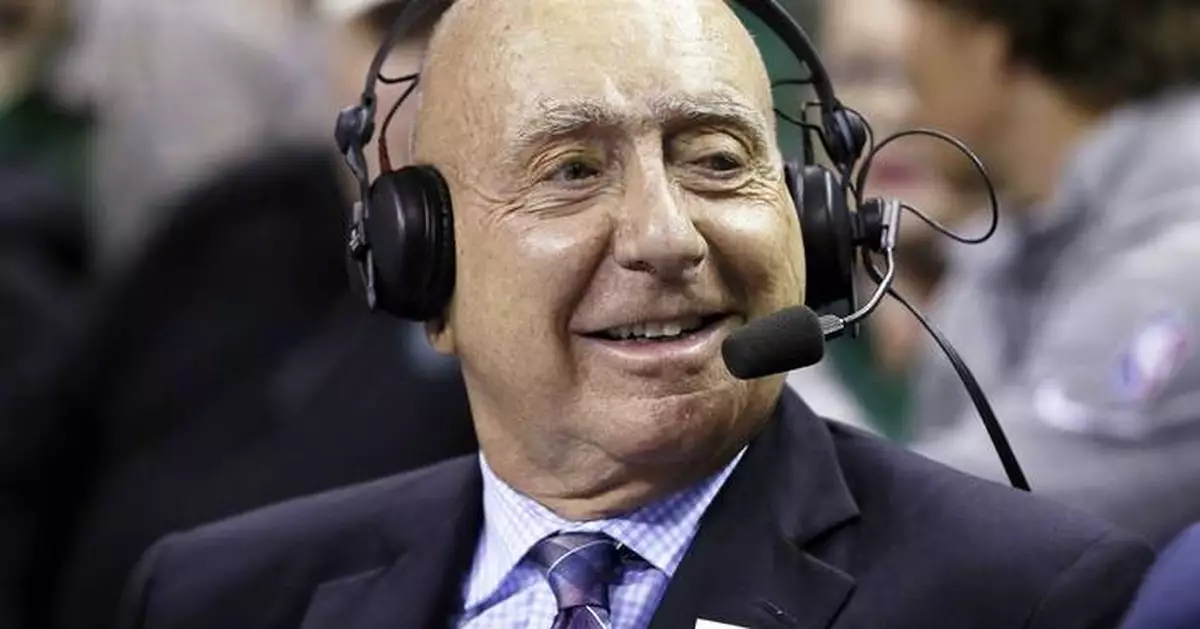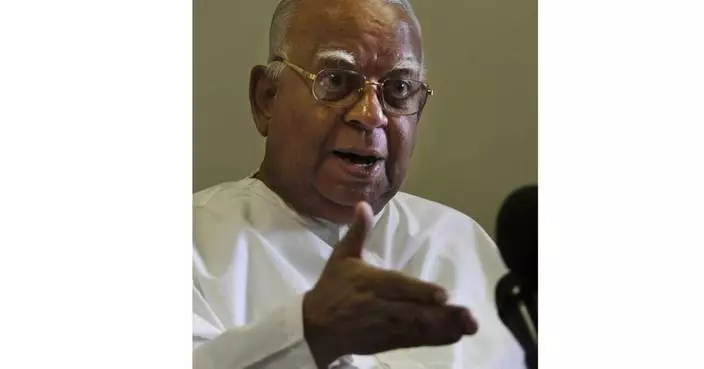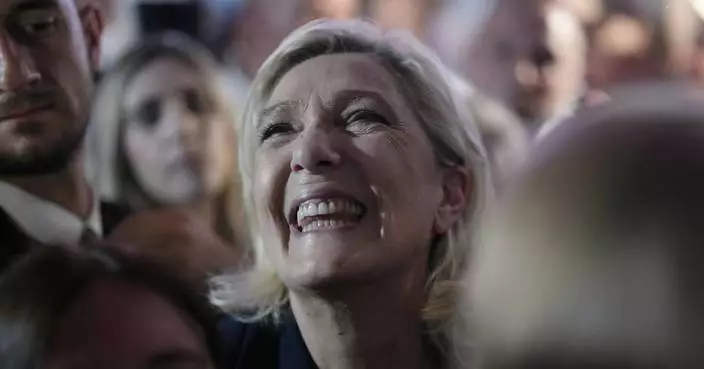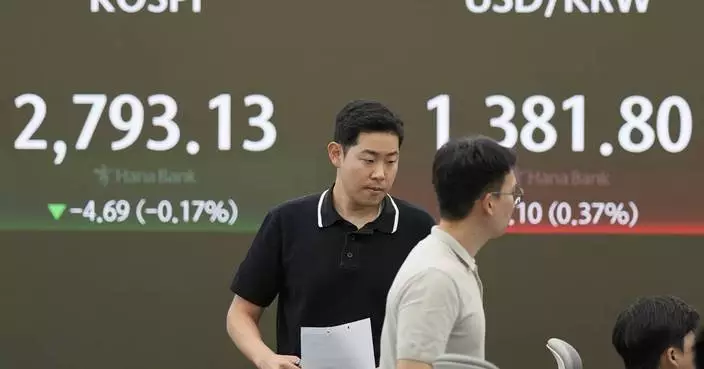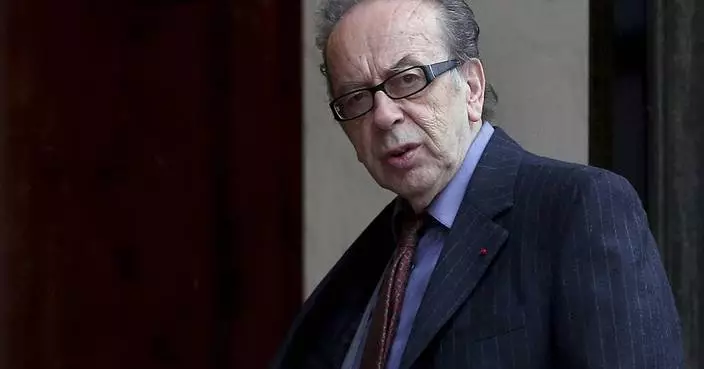BRISTOL, Conn. (AP) — Longtime ESPN college basketball analyst Dick Vitale said on social media he has been diagnosed with cancer for a fourth time.
Vitale announced Friday that a biopsy of a lymph node in his neck showed cancer. He is scheduled to have surgery Tuesday.
“With all the (prayers) I have received & the loving support of my family, friends and ESPN colleagues, I will win this battle,” Vitale said on on X, formerly Twitter.
The 85-year-old Vitale has previously been treated for melanoma and lymphoma. He also had six weeks of radiation treatments last year when tests revealed he had vocal cord cancer.
Vitale has been with ESPN since 1979, the year the network launched. The former coach called ESPN’s first college basketball broadcast. He’s also a longtime fundraiser for cancer research.
Vitale helped friend Jim Valvano to the stage at the 1993 ESPYs, where Valvano delivered his famous “Don’t give up” speech. Valvano died of adenocarcinoma less than two months later.
AP college basketball: https://apnews.com/hub/college-basketball and https://apnews.com/hub/ap-top-25-college-basketball-poll and https://twitter.com/AP_Top25
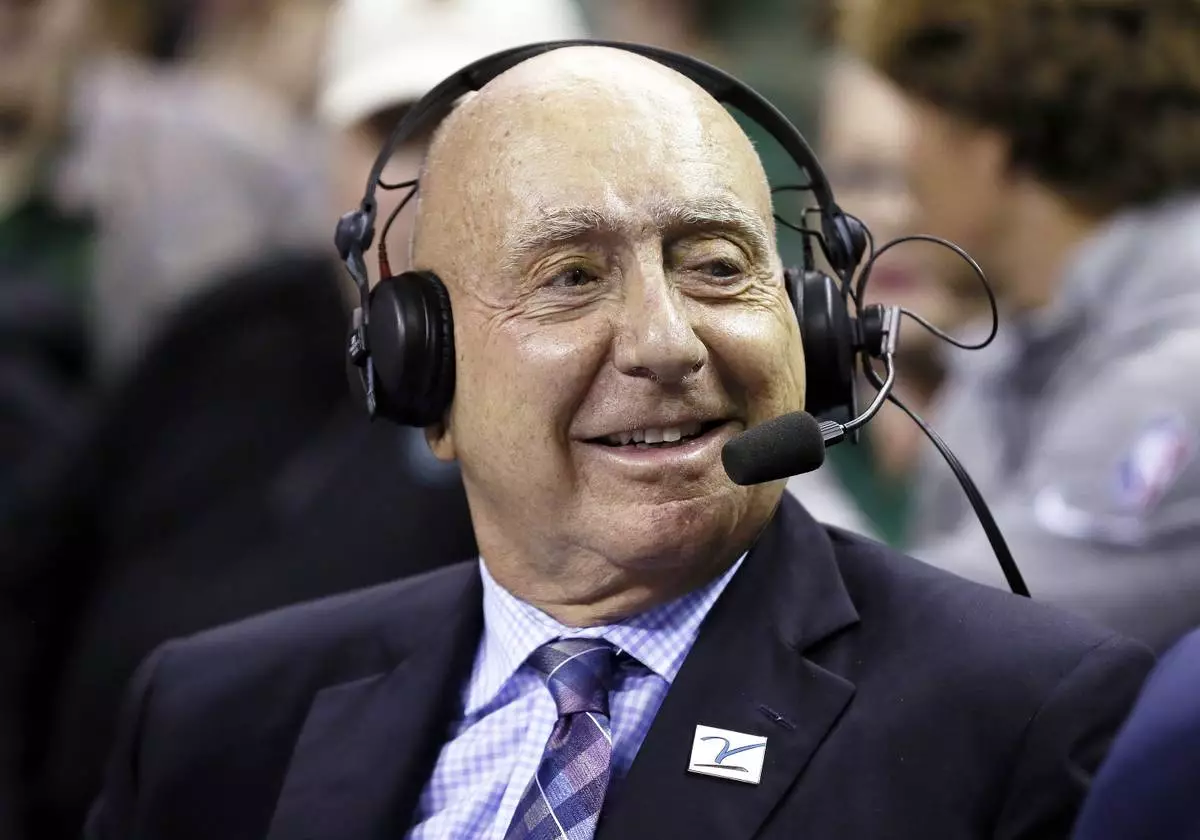
FILE - ABC/ESPN basketball analyst Dick Vitale sits at midcourt prior to an NCAA college basketball game between Baylor and Villanova, Dec. 12, 2021, in Waco, Texas. Longtime ESPN college basketball analyst Vitale said on social media Friday, June 28, 2024, that he has been diagnosed with cancer for a fourth time. (AP Photo/Ray Carlin, File)
LONDON (AP) — Britain’s upcoming general election is widely expected to lead to a change of government for the first time in 14 years. Many analysts believe it will be one of the country’s most consequential elections since the end of World War II.
Ahead of the July 4 vote, The Associated Press takes a look back at other landmark U.K. elections since the war.
In 1997, the Labour Party had been out of power for longer than it has been now — 18 years compared to the current 14.
When it lost the 1992 election to John Major's Conservatives, many questioned whether it would ever be able to win power again.
So it was quite a turnaround when Labour, under the leadership of the youthful Tony Blair, won the May 1, 1997 general election by a landslide. “New Labour, New Britain” was the party’s slogan, and “Things can only get better” by D-ream was its theme song.
Under Blair, Labour won a majority of 179 seats, even bigger than the party's victory over Winston Churchill's Conservatives soon after the defeat of Nazi Germany in 1945. The Conservatives ended up with just 165 of the 650 seats in the House of Commons, their worst result since 1906.
One factor for the Tories' defeat was the economic crisis of Sept. 1992, when the British pound was ignominiously ejected from a European exchange rate system. It was difficult to dislodge widespread misgivings that the government was losing control of the economy.
Major also had to contend with a series of financial and sexual scandals within his Conservative Party in the years running up to polling day. The party was also deeply divided over the U.K.'s place within the European Union, even though Major had negotiated an opt-out for the country from joining in the creation of a common currency, the euro. He called some of his recalcitrant Cabinet ministers “the bastards” in an unguarded moment.
But perhaps most importantly, Blair's centrist policies did not frighten voters who had withheld their support from Labour for a generation.
Blair would lead Labour to three straight election wins and spend a decade as prime minister, longer than any other leader of the party.
His supporters cite notable domestic achievements including the signing of the Good Friday Agreement in 1998, which largely brought an end to decades of sectarian violence in Northern Ireland. Blair's government also ratcheted up spending in the public services, such as schools and hospitals, and oversaw the longest period of economic growth in Britain in the post-war era.
However, he remains a hugely controversial figure in Britain because of his support for the U.S.-led war in Iraq in 2003.
Some within the Labour Party were relieved when Blair quit in 2007 and handed power to his long-time Treasury chief Gordon Brown. Unfortunately for Brown, the global financial crisis was just around the corner.
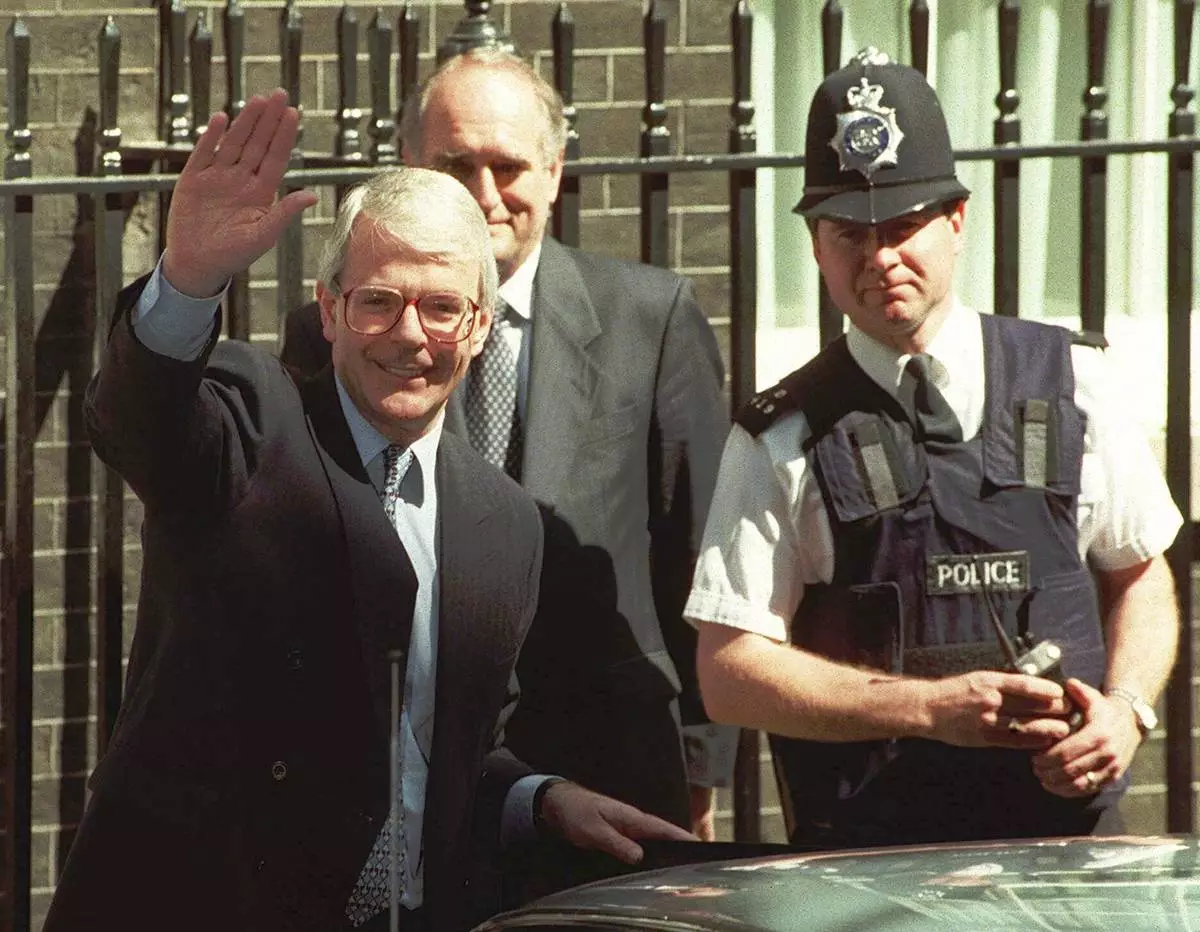
FILE - Britain's outgoing Prime Minister John Major waves as he leaves Downing Street, London, May 2, 1997, to tender his resignation to the Queen at Buckingham Palace. The upcoming general election on July 4, 2024, is widely expected to lead to a change of government for the first time in 14 years. In 1997, the Labour Party had been out of power for longer than it has been now - 18 years - and it was quite a turnaround when Labour, under the leadership of the youthful Tony Blair, won the May 1, 1997 general election by a landslide majority of 179 seats. (AP Photo/Dave Caulkin, File)
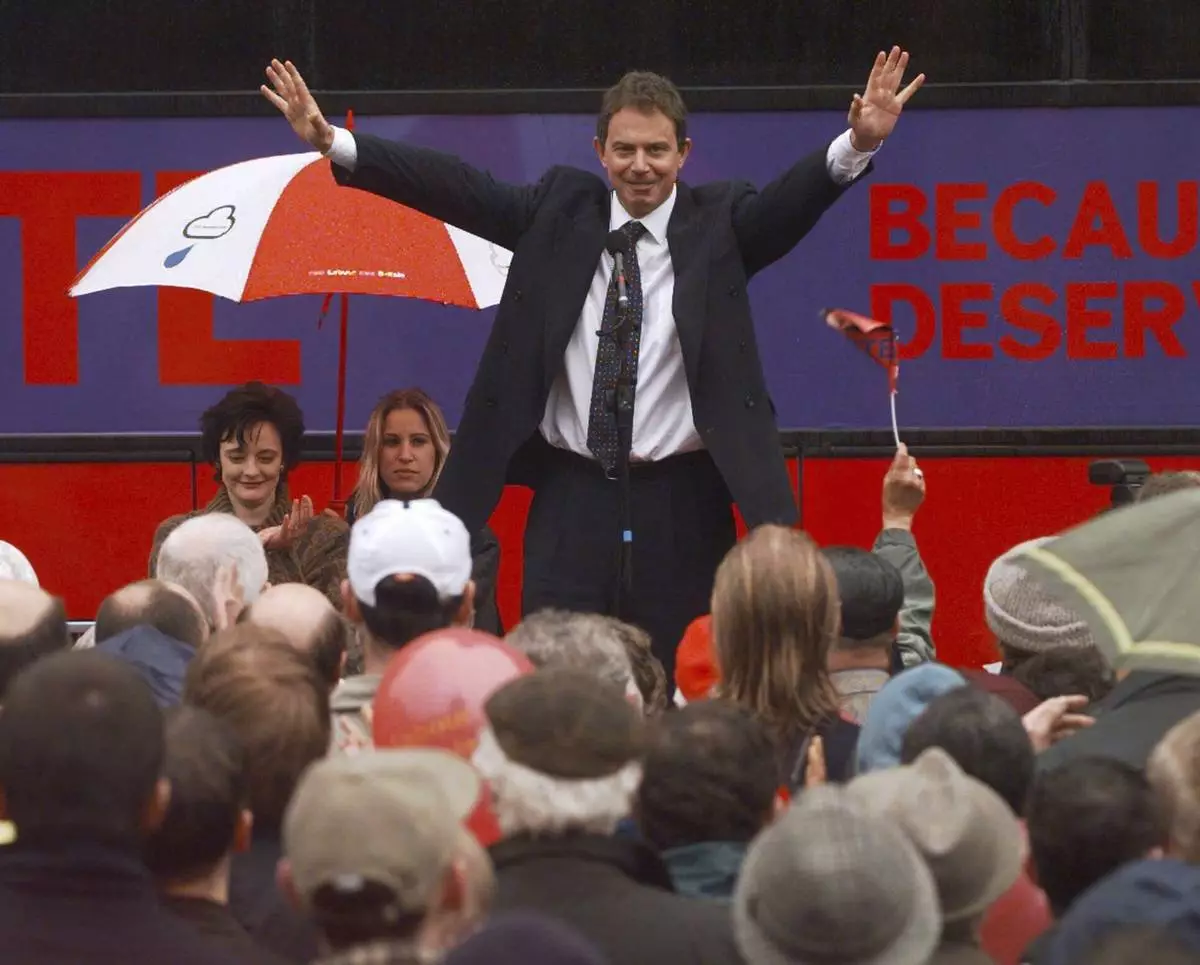
FILE - British Labour Party leader Tony Blair acknowledges applause during his speech to supporters at a campaign stop at Manchester's Albert Square, Manchester, England, April 26, 1997. The upcoming general election on July 4, 2024, is widely expected to lead to a change of government for the first time in 14 years. In 1997, the Labour Party had been out of power for longer than it has been now - 18 years - and it was quite a turnaround when Labour, under the leadership of the youthful Tony Blair, won the May 1, 1997 general election by a landslide majority of 179 seats. (AP Photo/Jacqueline Arzt, File)
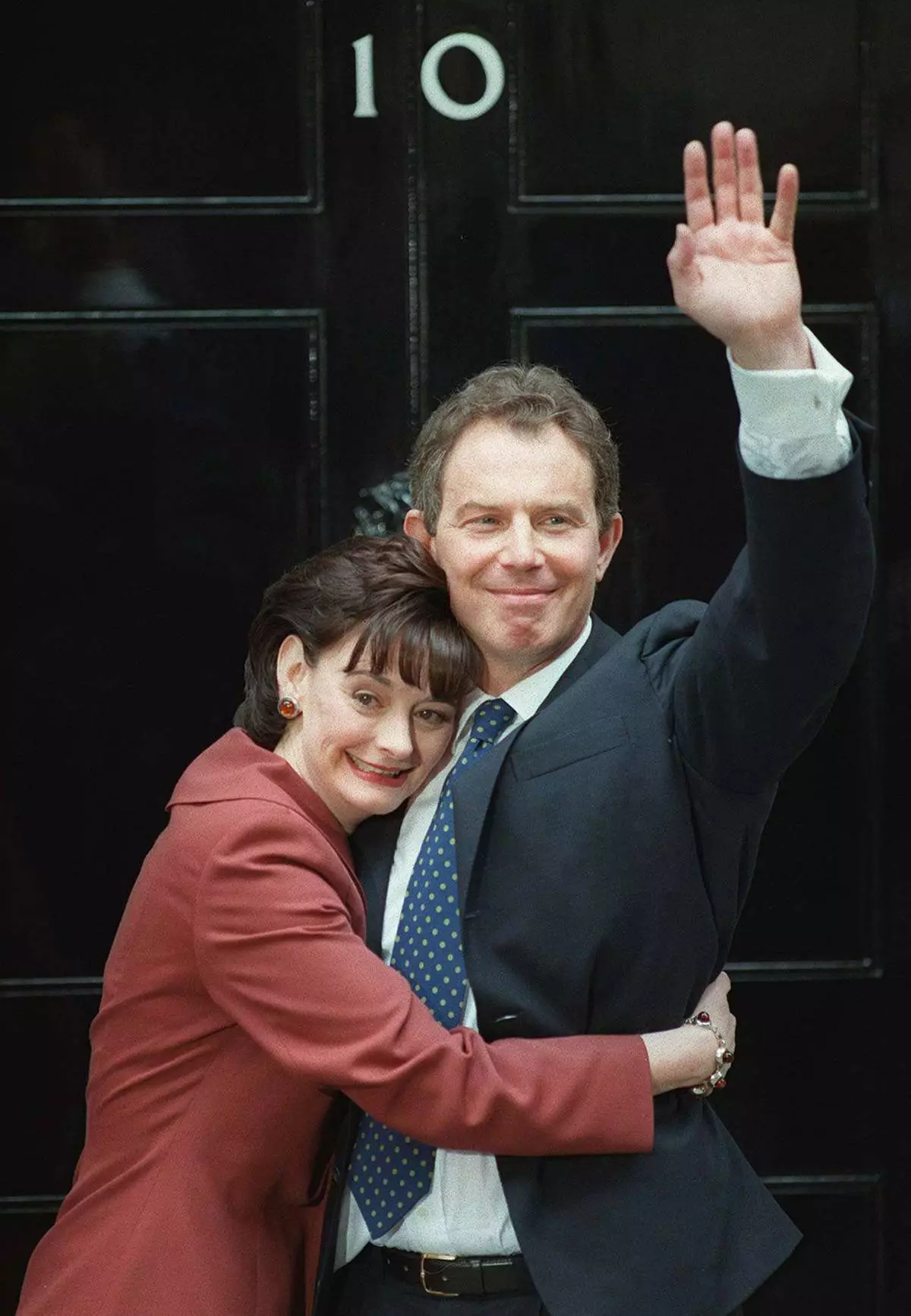
FILE - Britain's Prime Minister Tony Blair is hugged by his wife Cherie outside No. 10 Downing Street in London, May 2, 1997, shortly after his election win. The upcoming general election on July 4, 2024, is widely expected to lead to a change of government for the first time in 14 years. In 1997, the Labour Party had been out of power for longer than it has been now - 18 years - and it was quite a turnaround when Labour, under the leadership of the youthful Tony Blair, won the May 1, 1997 general election by a landslide majority of 179 seats. (AP Photo/Dave Caulkin, File)
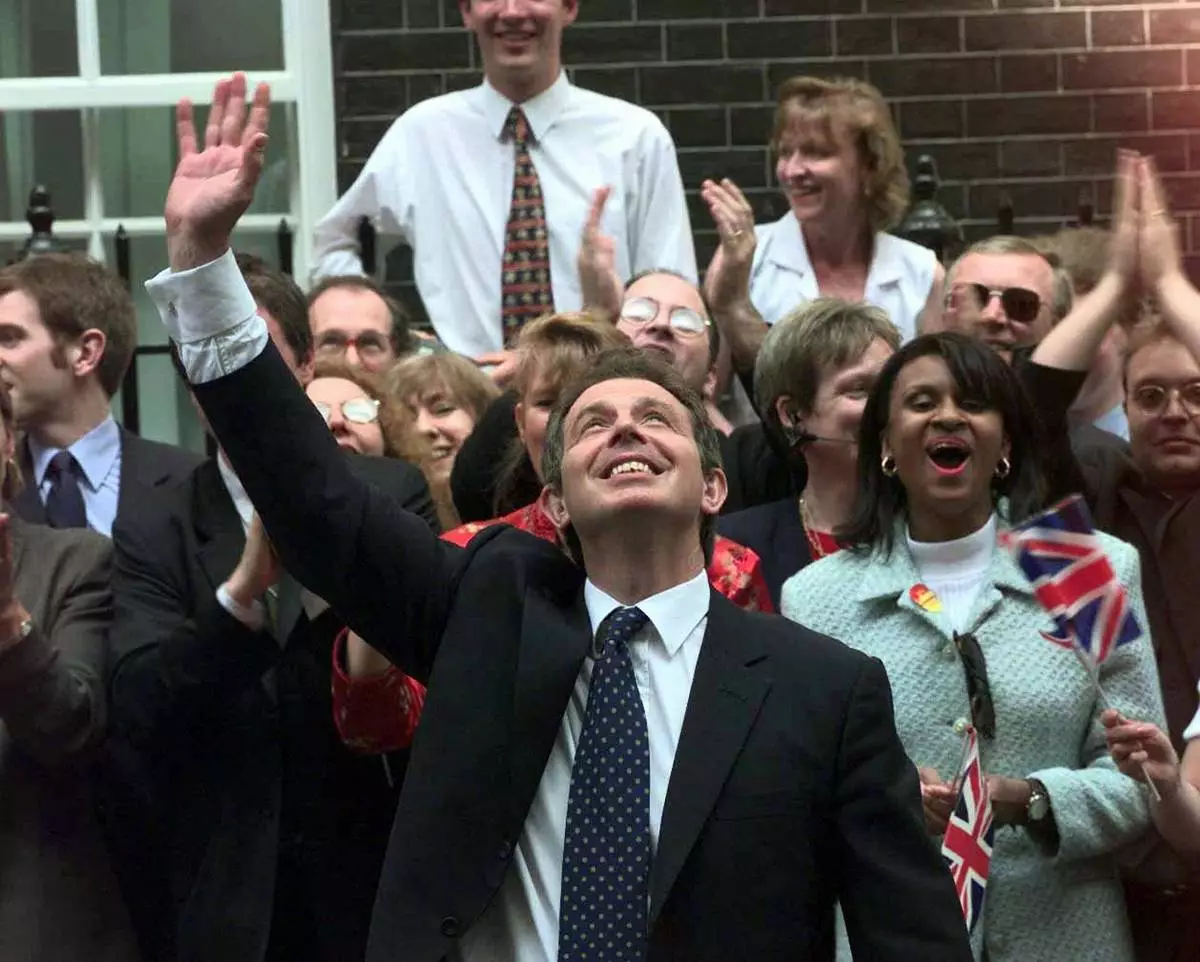
FILE - Britain's new Prime Minister Tony Blair, waves to well wishers in Downing Street, London, May 2, 1997. The upcoming general election on July 4, 2024, is widely expected to lead to a change of government for the first time in 14 years. In 1997, the Labour Party had been out of power for longer than it has been now - 18 years - and it was quite a turnaround when Labour, under the leadership of the youthful Tony Blair, won the May 1, 1997 general election by a landslide majority of 179 seats. (AP Photo/Max Nash, file)



